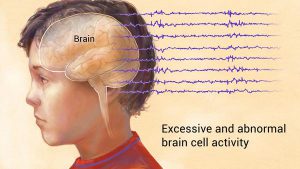Epilepsy
 What is the disease all about
What is the disease all about
Epilepsy is all about A disorder in which nerve cell activity in the brain is disturbed, causing seizures. Epilepsy is a neurological disorder. Primary symptoms commonly include seizures. Seizures have a range of severity depending on the individual. Treatments include anti-seizure medications.
Impact of the disease on individuals and society
When the patients of epilepsy is going through the disease the person feels too much pain while going through the treatment. The life span of that person reduces up to 10 years. After the treatment the person becomes normal and can live normally as others do. emotions and behavior changes can occur. Social development and interaction can effect. The ability to study and work would be decrease a lot.
What techniques can be used to diagnose the disease
a convulsion with no temperature (no fever). Short spells of blackout, or confused memory. Intermittent fainting spells, during which bowel or bladder control is lost, which is frequently followed by extreme tiredness. For a short period, the person is unresponsive to instructions or questions. The person becomes stiff, suddenly, for no apparent reason. The person suddenly falls for no clear reason. Sudden bouts of blinking without apparent stimuli. Sudden bouts of chewing, without any apparent reason. For a short time the person seems dazed and unable to communicate. Repetitive movements that seem inappropriate. The person becomes fearful for no apparent reason; they may even panic or become angry. Peculiar changes in senses, such as smell, touch, and sound. The arms, legs, or body jerk, in babies these will appear as a cluster of rapid jerking movements
Which other systems could be affected
Brain conditions like tumors or strokes, and head injuries may be involved in some cases. Because epilepsy is a brain disorder, it can affect many different organs or systems throughout the body.
How can transplantation or any other scientific advances play an important role in the treatment of the disease
Epilepsy is usually treated by medication and in some cases by surgery, devices or dietary changes. Nerve pain medication. Blocks pain caused by damaged nerves. Causes drowsiness, calmness and dulled senses. Some types may become addictive. Prevents or controls seizures, relieves pain and treats symptoms of certain psychiatric disorders.
The implications (ethical, social, economic, political, cultural or geographical) of using transplantation or any other scientific advances to cure the disease.
First, is it ethical for a developing country to channel its limited resources from direct epilepsy care to research. political- If there will be more transplants in a country there will be more economic growth in the country.